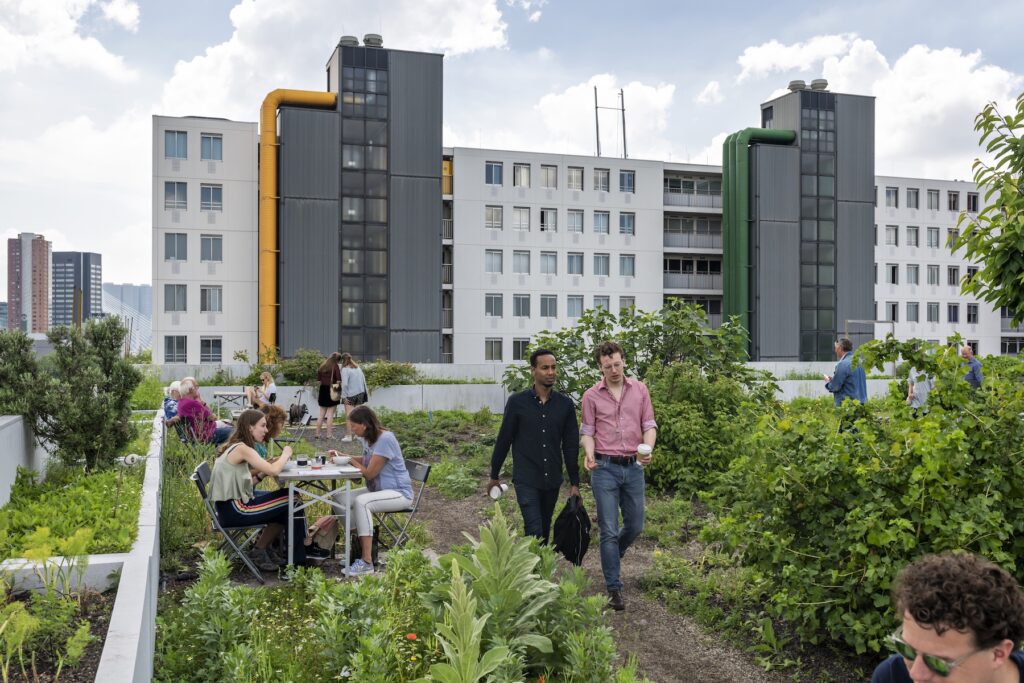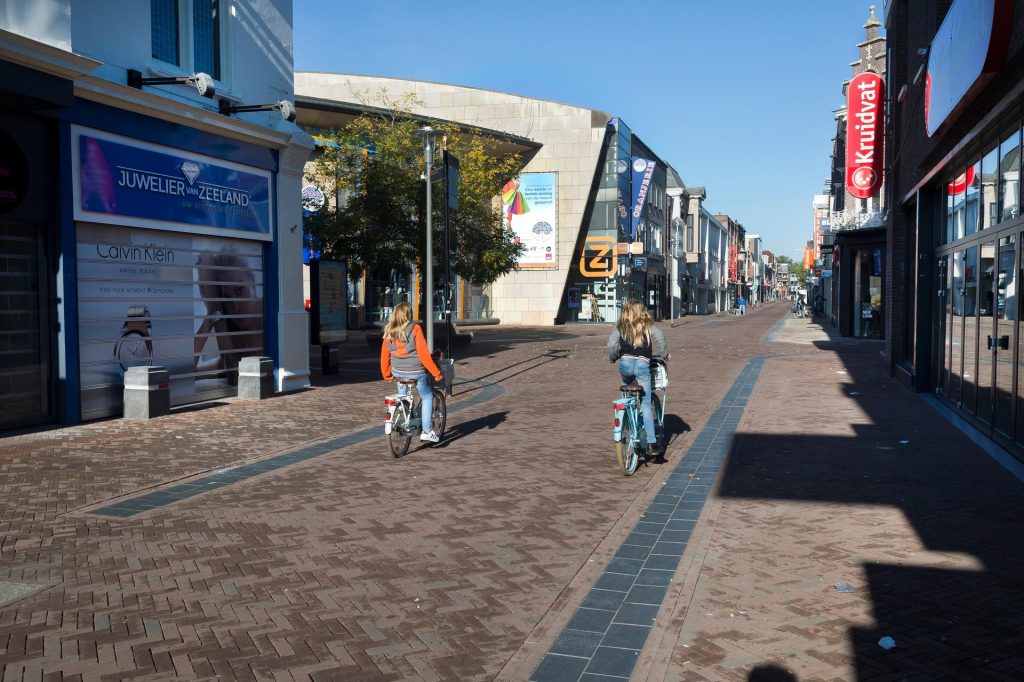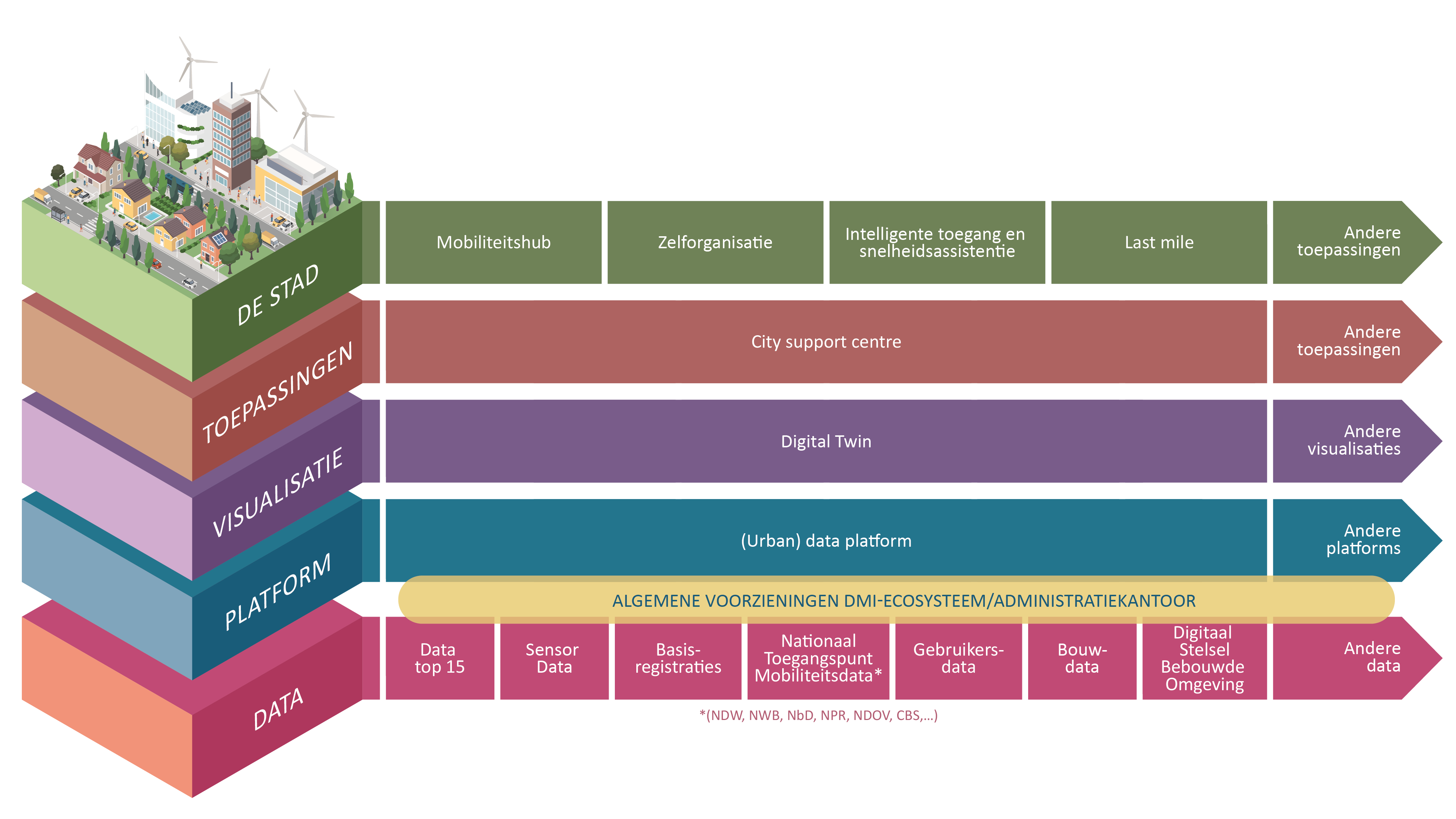About the DMI ecosystem




The Netherlands faces major and urgent challenges.
CO2 and nitrogen emissions must be reduced significantly. We need 900,000 additional homes in the city, the climate urgently requires adjustments in the built environment, and energy supply is no longer a given. In addition, the pressure on available space, the mobility system, our energy networks and public finances has further increased. Citizens, businesses and governments notice the consequences of this every day.
All these different issues are interrelated. And so if we really want to tackle all these major challenges properly, we must do so in coherence. So that the way in which we organize our environment, stay there and move around really does bring sustainable progress. That requires the targeted coordination of policies and investments - both between governments and between governments and the business community - so that we make sufficient scale and impact quickly. And in doing so, we must maximize the potential of information technology, within socially responsible frameworks.
DMI ecosystem facilities.
Cohesion and cooperation are keywords of DMI ecosystem. We shape that with the facilities below.

This is how the DMI ecosystem was created
A few companies contacted the Ministry of Infrastructure and Watermanagement with the idea for a data-driven ecosystem relating to mobility data. Later on, the scope broadened to smart and sustainable urbanisation.
Public and Private partners together submitted the Data-Driven Ecosystem for Mobility and Smart City (DEMS) investment proposal to the Dutch National Growth Fund.
The proposal was approved by the National Growth Fund, on the condition that some adjustments were made. The team went back to incorporate all feedback in a adjusted version of the proposal under a new name: the Dutch Metropolitan Innovations (DMI) ecosystem.
The adjusted version of the proposal included 17 innovation offers by a number of different (consortia of) partners. Both the ministries of Infrastructure and Watermanagement and Internal Affairs and Kingdom relations and participating municipalities (G40 cities network) submitted the new proposal to the National Growth Fund.
The Dutch Council of Ministers, based on a positive advice from the National Growth Fund, decides to invest 85 million euros in the further development of the DMI- ecosystem. The business community contributes an additional 42 million euros, an additional 50 million euros comes from local governments.
From the DMI-ecosystem, the first innovation assignments are being issued. This involves the development of innovative applications, based on data exchange and reuse between different parties and domains.
The DMI Centre, located at Barchman Wuytierslaan 10 in Amersfoort, opens its doors. The Centre offers the DMI network a physical place, centrally located in the country, where public and private partners can meet.
These DOCUMENTS form the basis of the dmi ecosystem
Functioning of the DMI ecosystem.
Collaborate on scalable solutions and responsible use of data.
